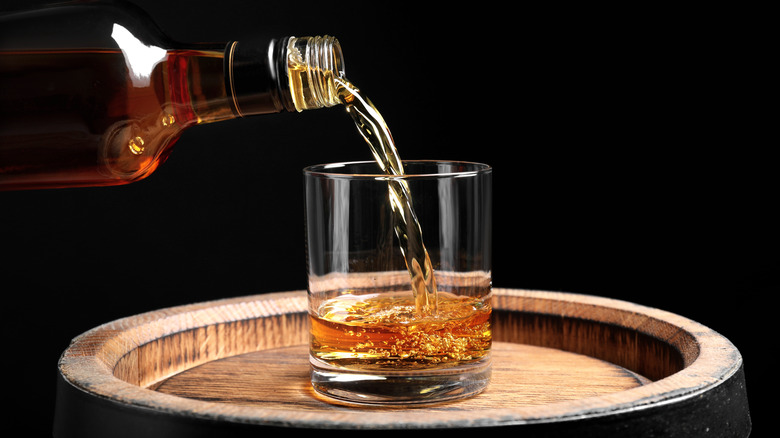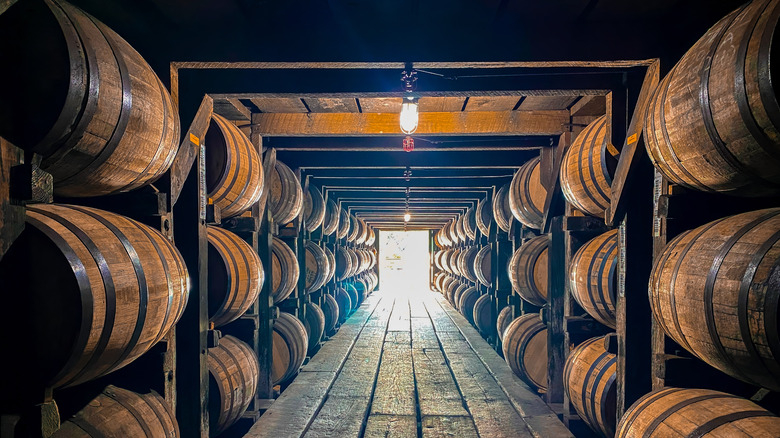Here's How Many Bottles Of Bourbon Are In A Single Barrel
If you know nothing else about bourbon, you probably know it's strongly associated with Kentucky and barrels. And while American corn whiskey doesn't have to be made in Kentucky, it must be stored in charred oak barrels to be legally called bourbon. However, how many bottles of bourbon are in a single barrel is a surprisingly complicated question.
The average bourbon barrel size is 53 gallons, but that doesn't mean a 53-gallon barrel produces 53 gallons of bourbon. If only it were so simple. First of all, it depends on how long it is aged. The longer the bourbon is aged, the more product is lost to evaporation (also known as "the angel's share"). If a bourbon is aged for four to six years, which is relatively standard for many mass-market products, each barrel will produce roughly 160 to 180 bottles.
Secondly, unless bourbon is labeled as cask strength, water has most likely been added to reduce it to roughly 40% to 45% alcohol by volume (ABV) or 80 to 90 proof (the proof is double the ABV). After proofing, one 53-gallon barrel of bourbon aged four to six years will likely produce between 200 and 250 750ml bottles.
The type of barrels used are crucial
As mentioned, bourbon is legally required to be stored in charred oak containers — more specifically, new charred oak containers. This is a critical detail because other whiskeys, such as Scotch, can be aged in used barrels (in fact, former bourbon barrels are often reused for Scotch). In addition to being legally required, aging bourbon in new barrels helps maintain consistent quality and flavor.
Keep in mind that different types of barrels can impact the flavor of the bourbon. For example, toasted barrel bourbon is finished in barrels that have been toasted rather than charred, which is said to give the final product a lighter, smoother flavor. Single barrel bourbon means that all the whiskey comes from, you guessed it, one single barrel, which often results in a more distinctive flavor profile. Obviously, you don't have to remember all this information to enjoy a rich and robust glass of American bourbon whiskey, but it can help you decide which bourbons are (and aren't) worth buying. And at the end of the day, one thing is clear: The world of barrels, like a good bourbon, is deceptively complex.

